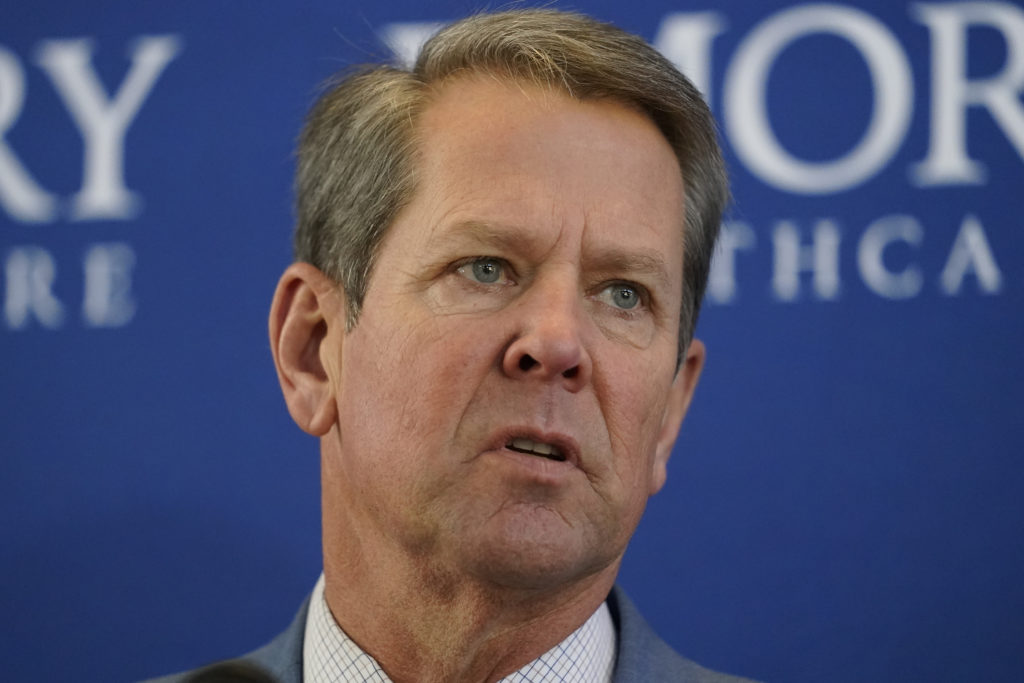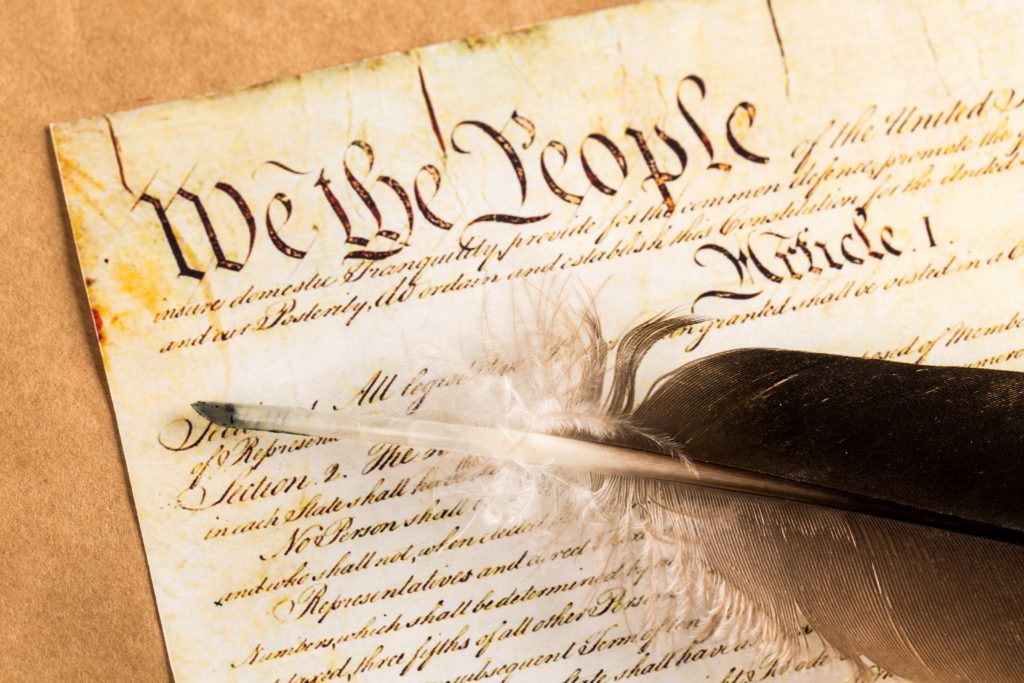Georgia governor pushes back on Donald Trump’s call for resignation

Georgia Gov. Brian Kemp on Wednesday called a tweet by President Donald Trump demanding his resignation a “distraction” and said he was focused on the state’s response to the coronavirus pandemic and upcoming runoff elections for two U.S. Senate seats. Trump said earlier in the day that Kemp, a fellow Republican, was an “obstructionist who refuses to admit that we won Georgia, BIG!” Trump lost the state to Democrat Joe Biden but has repeatedly made baseless accusations that illegal votes cost him the state’s electoral votes. He has also previously criticized Kemp, who has rejected his demands to undermine the results. In Wednesday’s tweet, he said Kemp “should resign from office.” “All of these things are a distraction,” Kemp said at a news conference at the state Capitol. “I mean, I’ve supported the president. I’ve said that many times. I worked as hard as anybody in the state on his reelection up through Nov. 3.” Kemp said the focus should be on the state’s Jan. 5 elections. Democrats need to win both seats to take control of the U.S. Senate. “All these other things, there is a constitutional and legal process that is playing out, and I’m very comfortable letting that process play out,” he said. The spat flared as Georgia officials continued to defend the election results. Investigators who audited the signatures on more than 15,000 absentee ballot envelopes in one Georgia county found “no fraudulent absentee ballots,” according to the audit report. Secretary of State Brad Raffensperger announced earlier this month that his office would work with the Georgia Bureau of Investigation to do the signature audit in suburban Atlanta’s Cobb County. Deputy Secretary of State Jordan Fuchs said at the time that Trump’s campaign had alleged that Cobb County didn’t properly conduct the signature match for the June primary. “This audit disproves the only credible allegations the Trump campaign had against the strength of Georgia’s signature match processes,” Raffensperger, also a Republican, said in a news release Monday. Biden narrowly won Georgia by about 12,000 votes out of 5 million cast. The investigators reviewed 15,118 absentee ballot envelopes from randomly selected boxes, about 10% of the total received in Cobb County for the November general election, according to the audit report. That sample size was chosen to “reach a 99% confidence level in the results.” The Cobb County elections department had “a 99.99% accuracy rate in performing correct signature verification procedures,” the audit report says. In two cases, the audit team determined that a voter should have been contacted to fix a problem. In both those cases, investigators interviewed the voters and determined they were the ones who cast the ballots, the report says. Georgians can request absentee ballots either through an online portal that Raffensperger established in September or by submitting an application. For online requests, they provide their driver’s license number and date of birth to verify their identity. If they use an application, they must sign it for verification. When an application is received, county election workers compare the signature on the application to the voter’s signature on file, and if it is consistent, a ballot is mailed, Raffensperger has said. Before submitting an absentee ballot, a voter must sign an oath on an outer envelope. When county election officials receive an absentee ballot, they must compare the signature to the absentee ballot application if one exists and to the signature on file. The signatures must be consistent but don’t have to match exactly, Raffensperger has said. If the signature doesn’t match, the voter is notified and can take other steps to verify identity. If the signature does match, the ballot is separated from the envelope to protect the right to ballot secrecy guaranteed by Georgia law. Republished with the permission of the Associated Press.
Missouri senator Josh Hawley to contest Joe Biden’s Electoral College win

Sen. Josh Hawley, R-Mo., said Wednesday he will raise objections next week when Congress meets to affirm President-elect Joe Biden’s victory in the election, forcing House and Senate votes that are likely to delay — but in no way alter — the final certification of Biden’s win. President Donald Trump has, without evidence, claimed there was widespread fraud in the election. He has pushed Republican senators to pursue his unfounded charges even though the Electoral College this month cemented Biden’s 306-232 victory and multiple legal efforts to challenge the results have failed. A group of Republicans in the Democratic-majority House have already said they will object on Trump’s behalf during the Jan. 6 count of electoral votes, and they had needed just a single senator to go along with them to force votes in both chambers. Without giving specifics or evidence, Hawley said he would object because “some states, including notably Pennsylvania” did not follow their own election laws. Lawsuits challenging Biden’s victory in Pennsylvania have been unsuccessful. “At the very least, Congress should investigate allegations of voter fraud and adopt measures to secure the integrity of our elections,” Hawley said in a statement. He also criticized the way Facebook and Twitter handled content related to the election, characterizing it as an effort to help Biden. Biden transition spokeswoman Jen Psaki dismissed Hawley’s move as “antics” that will have no bearing on Biden being sworn in on Jan. 20. “The American people spoke resoundingly in this election and 81 million people have voted for Joe Biden and Kamala Harris,” Psaki said in a call with reporters. She added: “Congress will certify the results of the election as they do every four years.” White House Chief of Staff Mark Meadows praised Hawley on Twitter for “unapologetically standing up for election integrity.” When Congress convenes to certify the Electoral College results, any lawmaker can object to a state’s votes on any grounds. But the objection is not taken up unless it is in writing and signed by both a member of the House and a member of the Senate. When there is such a request, then the joint session suspends and the House and Senate go into separate sessions to consider it. For the objection to be sustained, both chambers must agree to it by a simple majority vote. If they disagree, the original electoral votes are counted. The last time such an objection was considered was 2005, when Rep. Stephanie Tubbs Jones of Ohio and Sen. Barbara Boxer of California, both Democrats, objected to Ohio’s electoral votes by claiming there were voting irregularities. Both chambers debated the objection and rejected it. It was only the second time such a vote had occurred. As president of the Senate, Vice President Mike Pence will preside over the Jan. 6 session and declare the winner. Asked about Hawley’s announcement, House Speaker Nancy Pelosi, D-Calif., said, “I have no doubt that on next Wednesday, a week from today, that Joe Biden will be confirmed by the acceptance of the vote of the electoral college as the 46th president of the United States.” Hawley is a first-term senator and potential contender in the 2024 presidential primary, and his decision to join the House objectors is a rebuff to Senate Majority Leader Mitch McConnell, who had asked his caucus not to participate in a futile quest to overturn the results. Aware that the Democratic-led House would not support such a challenge and that it would put most of his fellow GOP senators in a bind, McConnell told them on a private call Dec. 15 that it would be a “terrible vote” to have to take. That’s according to two people who were not authorized to publicly discuss the private call and spoke on condition of anonymity. While some Republicans have echoed Trump’s unsubstantiated claims, or at least refused to counter them, McConnell and an increasing number of GOP senators have acknowledged that Biden won and will be inaugurated Jan. 20. The Senate’s No. 2 Republican, South Dakota Sen. John Thune, said earlier this month that if the Senate were forced to vote on a challenge “it would go down like a shot dog.” Thune said it didn’t make sense to put senators through a vote when “you know what the ultimate outcome is gonna be.” A range of nonpartisan election officials and Republicans have confirmed there was no fraud in the November contest that would change the results of the election. That includes former Attorney General William Barr, who said he saw no reason to appoint a special counsel to look into the president’s claims about the 2020 election. He then resigned from his post last week. Trump and his allies have filed roughly 50 lawsuits challenging election results, and nearly all have been dismissed or dropped. He’s also lost twice at the Supreme Court. The group of House Republicans have said they plan to challenge the election results from Michigan, Wisconsin, Pennsylvania, Georgia, and Nevada. All are states that Biden carried. Alabama Rep. Mo Brooks, one of the Republicans who is leading the efforts, has raised questions about the way state elections were conducted. Some of the states made changes to ballots and procedures during the pandemic. While the new procedures may have led to confusion in some places, state and federal officials have said there was no credible evidence of widespread fraud. In addition to having to go on the record with a vote, Republicans are worried about negative effects on the two Senate runoff elections in Georgia on Tuesday. GOP Sens. David Perdue and Kelly Loeffler face Democratic challengers Jon Ossoff and Raphael Warnock in a state that flipped in November for Biden. Republished with the permission of the Associated Press.
Lawsuit: Huntsville billboard rules violate free speech laws

A northern Alabama city is illegally restricting signs based on their content in violation of free speech laws, according to a lawsuit by a company that operates electronic billboards and other signs in Alabama and Georgia. In a recent federal lawsuit, New South Media Group says numerous applications for its signs have been denied by the city of Huntsville. The city’s sign regulations favor some groups over others and are unfair in how they consider the content of the messages that will appear on signs, the company said in the lawsuit. “The City has been advised that content control by government officials violates free speech protections, including by Plaintiff, but the City has chosen to defy clear decisions of the United States Supreme Court in its regulation of signage,” the lawsuit states. As a general practice, the city does not comment on litigation outside of court filings, Huntsville spokeswoman Kelly Schrimser said in an email. The city has not yet responded in detail in the court papers. The company’s business partners include private companies, but also nonprofit groups and government agencies such as the Alabama Department of Public Health. Alabama and other states nationwide are ramping up efforts to encourage people to become vaccinated against COVID-19, using social media, TV, radio and message boards to reach the public. “New South has a long and substantial relationship with the Alabama Department of Public Health and has posted a large variety of public health messages on many signs,” the lawsuit states. City officials denied the company’s application for a sign that would post such governmental messages, the lawsuit states. Messaging from the state health department is currently focused on COVID-19, including prevention measures, one of New South’s lawyers, E. Adam Webb, said in an email Wednesday. The company is asking a judge for an order that would stop the city from enforcing its sign regulations. New South Media Group LLC is a Georgia corporation that owns and leases the signs, Webb said. An affiliated firm, New South Outdoor LLC is an Alabama corporation that manages sales. Republished with the permission of the Associated Press.


